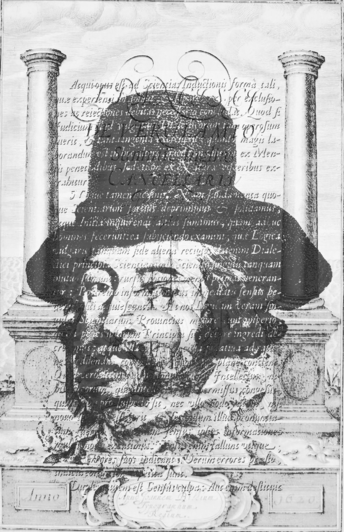Francis Bacon1561–1626
Bacon represents the dawning of the scientific era as it was applied to natural phenomena because of his emphasis on observation rather than a reliance on reason. He lived in an age of intellectual and social turmoil, when the old order of deference to received wisdom was being replaced by new views of religion, government, and nature. It was an age of geographical discovery and conquest. Bacon (later Lord Verulam) was trained in law and rose to high office in government, becoming Lord Chancellor in 1618. His descent from power was precipitate following conviction for bribery in 1621. Throughout his life he wrote extensively on law, history, and learning as well as on natural philosophy. His Novum Organum (1620) described the science of induction - "a form which may solve experience, may separate things, and, by means of due exclusions and rejections, conclude necessarily". He argued that data should be accumulated and compared so that the underlying causes could be induced, rather than deducing particular events from universal principles. His opposition to Aristotelian logic was virulent and was harboured from an early age. Bacon's philosophical position was initially outlined in The Advancement of Learning (1605) and his advocacy of the methods of empirical science instilled a spirit of experimental enquiry that was to culminate in the formation of The Royal Society in 1662. Despite instigating this new experimental philosophy, Bacon remained isolated from or opposed to many of the great scientific discoveries of his day, like Kepler's laws of planetary motion and Harvey's account of circulation of blood (despite being a patient of Harvey's). The inductive method itself, involving exhaustive classification, was not widely adopted but it was the emphasis on experiment rather than syllogism that was significant. In New Atlantis (1627) he described a house of Salomon in which marvels of the natural world could be explored: "We have also perspective-houses, where we make demonstrations of all lights and radiations; and of all colours.. We have also houses of deceits of the senses; where we represent all manner of feats of juggling, false apparitions, impostures, and illusions". This has been taken as a model for many of the modern museums of exploration in which natural phenomena can be observed and manipulated. Bacon is depicted in text from the Instauratio Magna of the Novum Organum, the new instrument that was to replace Aristotle's organon of logic. The text describes the essentials of inductive science, and it cautions against placing too great a reliance on the senses because of the two fallacies to which they are prone: they either fail or they deceive. Bacon states these fallacies are overcome either by providing substitutions where they fail and rectifications where they deceive, that is, by making experiments. The title page of the book is also shown.
